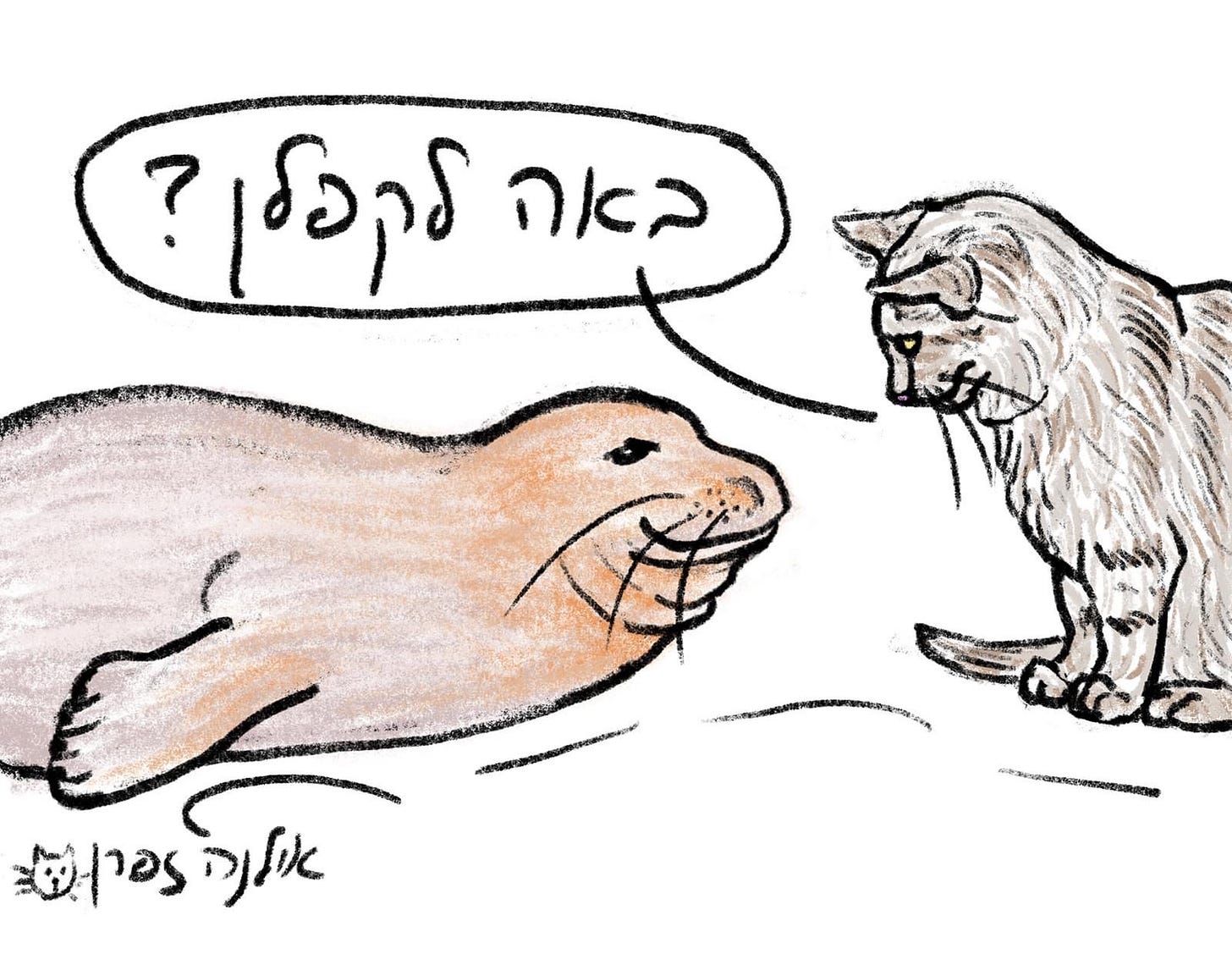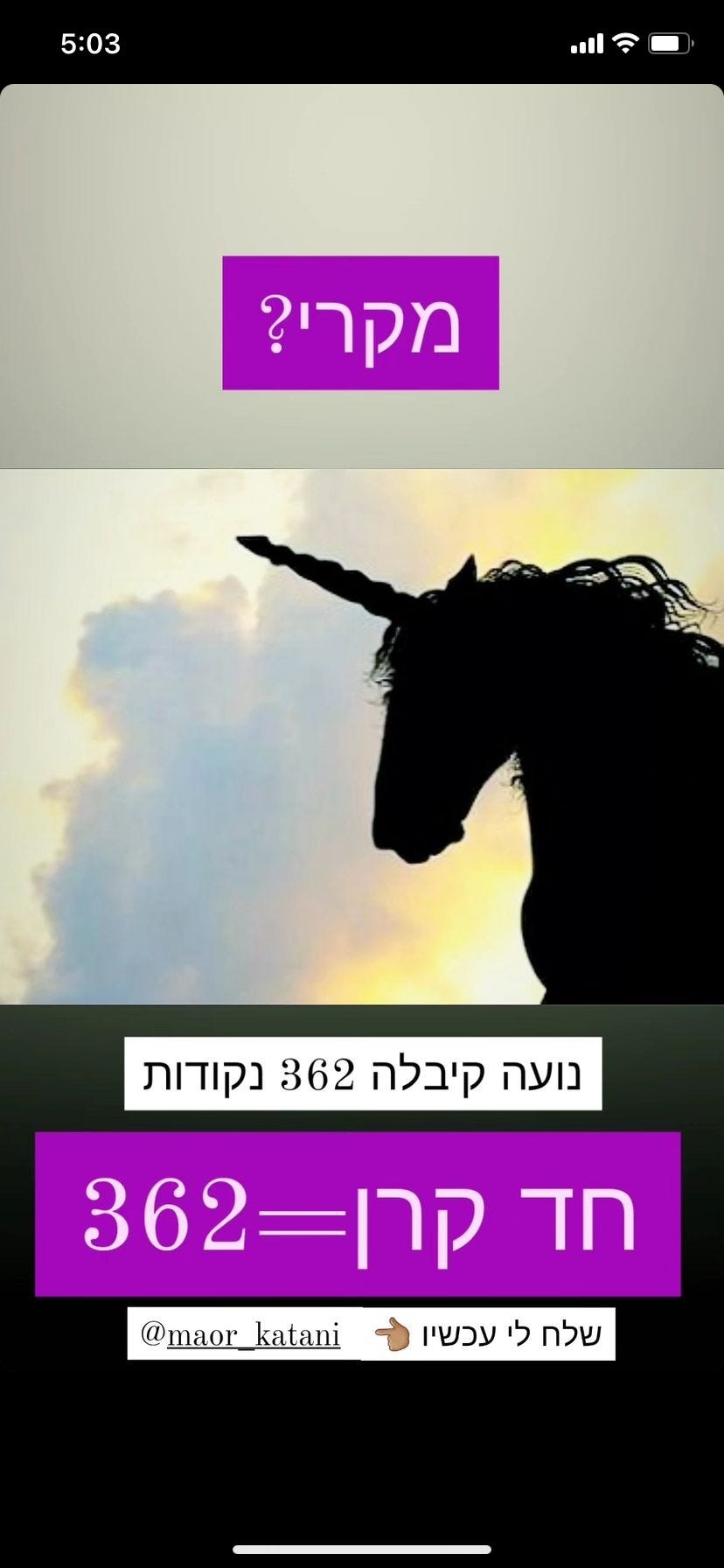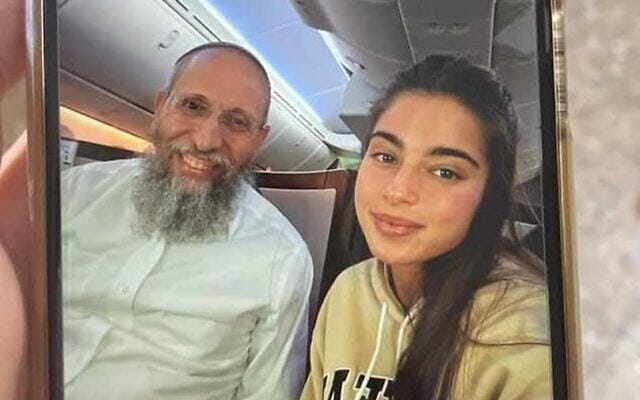Oh Yulia, Yulia, Where Art Thou Yulia
For the last few weeks, Israelis have been absolutely obsessed, not with the massive weekly anti-government protest marches or the periodic exchange of rocket fire with Hamas in Gaza, but with an adorable and sleepy endangered Mediterranean monk seal dubbed “Yulia.”
In the second week of May, Yulia plopped herself on a beach in Jaffa and went to sleep, going into the water occasionally to find food but always returning to her spot on the beach to chill. Kan, the national broadcaster, set up a 24/7 live cam to document Yulia’s every move, and the whole country waited with bated breath every time she disappeared for a few hours to fish or swim. Meanwhile, she inspired countless memes and jokes including our favorite, that she is now dating Static. (He does have a new girlfriend by the way, but she lives on the land, alas.)

After about five days, she finally disappeared from the beach, but the next day reappeared on a beach further north in Tel Aviv. Shortly thereafter she disappeared into the sea again, and experts hoped she might seek refuge further north, in Turkey, where she had been documented in previous years. In the last week, Yulia re-appeared near Ramat Hasharon on Erev Shavuot, and also made a brief appearance in an IDF closed beach, before popping up in Gaza (a good reminder of how close Israel is to its neighbors as well as the fact that the sea has no borders.)
Yulia’s sojourn in Israel was such an event that it even made The New York Times, but what was most interesting about the article was how much it got wrong about Israel and about Israelis’ collective interest in Yulia. (This probably doesn’t bode well for U.S.-Israel relations.) Take, for example, this paragraph:
In the span of a weekend, Israel’s national conversation turned in part from war to seals — providing one of the frequent instances of emotional whiplash that define daily life in Israel, where a decades-old conflict with the Palestinians, coupled with widening internal rifts, make for a turbulent existence. Domestic turmoil one week, deadly conflict the next — followed closely by the appearance of rare marine fauna.
This makes Israel sound like some dystopian planet completely unlike the United States, famously known for being free of domestic conflict, whose capital was certainly not the site of an attempted government coup a couple of years ago. Domestic turmoil and deadly conflict? The U.S. has been the site of more than 100 mass shootings already this calendar year. Yes, Yulia was a curiosity amid a particularly difficult period of Israeli life, but right now Americans are obsessively watching TikToks of Taylor Swift’s concerts and documenting her costume changes while the government is about to default on its debt, so spare us the hand wringing about the need for distraction from the turbulence of Israeli society. Also, Shayna was in grad school at NYU when they found a hawks’ nest in the library and everyone collectively lost their minds. Everyone has a weird fascination with wild animals in unexpected places–and Israel is no different. Look in the mirror, New York Times! And long live Yulia!
Unicorns at the Disco: Our Eurovision Wrap-up
The big Israel-related news about Eurovision is that Noa Kirel and her song “Unicorn” (which we wrote about here) got third place in the international song contest. But, as always, the most interesting stuff happens in the margins and behind the scenes, and that was certainly the case here.
As might be expected, Noa’s performance inspired a variety of (contradictory!) reactions from religious audiences. Aviv Alush (who we wrote about here), always the mystic, posted a complicated explanation of the gematria behind Unicorn and connected it to some messages about unity and Torah. Cool! Why not!
Then there was the plane encounter between Noa, on her way back from her performances in Liverpool, and the head rabbi of Gush Etzion, Rav Yosef Tzvi Rimon. Rav Rimon was puzzled when a message appeared on the in-flight screens congratulating Noa, and asked her (he didn’t know who she was!) who they were congratulating and why. Noa explained, and they took a selfie that the Rav shared to his family WhatsApp chat, from whence it made the rounds through the extensive web that is Israeli WhatsApp. The Rav offered himself as a rabbinic advisor when Noa told him that she prayed before the competition and stayed off her phone on Shabbat, and the meeting was described as a heartwarming example of intra-Jewish harmony.
Less harmonious was the reaction of Moshe Gafni, chair of the Knesset Budget Committee, who said, in the course of complaining that Haredi schools are underfunded (they’re not), that he “would have donated some clothing to [Noa Kirel] so she would have some.” This naturally inspired a reaction from Merav Michaeli, leader of the Labor Party, who called him out for commenting on the body of a young woman and criticizing a performer who had just brought public accolades to Israel. “So no, Mr. Gafni,” she said from the podium, “neither Noa Kirel nor anyone else needs your donations.” So much for intra-Jewish harmony! Two Jews, three opinions.
Before all of these controversies, Kan, the national broadcaster, released a promotional video on Instagram featuring Noa on Masada. We previously wrote about her song’s embedded Zionist message, so shooting a video to promote the song on Masada, long a symbol of Jewish military might and resistance used by the Israeli state for many years as the site where IDF recruits would swear their military oaths, seems fitting (and also seems to confirm our reading of the song). Strangely, Noa claims that this is her first visit to the historical site, where a group of Jewish zealots under siege by Roman forces chose mass suicide over capture in the first century of the Common Era. Is that even possible? In any case, Noa poses and gallivants around the ancient site in a revealing matching denim outfit, claiming that she’s excited to show everyone the beautiful view from the top of the fortress, and to show Europe the beauty of Israel. An interesting locale to choose as the representative landscape of the state of Israel, to say the least.
Noa, however, seemed blissfully unaware of the symbolism or significance of the site or its choice as a set piece for Eurovision, an obliviousness highlighted by some of her comments after the voting was over. After hearing that Poland had awarded her song the maximum point value, Noa said, “Receiving 12 points from Poland after almost all of the Kirel family was murdered in the Holocaust - that’s victory.” Aside from the sheer inanity of this statement (let’s not compare 3rd place at Eurovision to D-Day, shall we?), Noa’s words caused a minor furor in Poland, where suggesting that Poland was responsible for any part of the Holocaust is criminalized. (Poland prefers to blame Germany, and only Germany, and the official national narrative presents Poles as wholly innocent victims of the Nazis.) Therefore, one Polish minister was annoyed that she didn’t mention Germany, who didn’t give her any points–surely because of antisemitism. Poland claimed Noa’s comments were ignorant and the foreign minister invited her for a visit, saying, “We’ll explain to her that it hurts us.” So, not only did she manage to precipitate a small diplomatic incident, but inadvertently also called attention to the way the right-wing government of Poland has attempted to control speech to whitewash its history. They have already demanded that Israeli teens visiting Poland learn more about the good deeds done by Poles during the Holocaust to save Jews. Given that the deputy foreign minister of Poland revealed not long ago that Israel had consulted his government about passing its own proposed judicial reform, this gaslighting may offer a tiny taste of Israel’s future if the reform package passes through the Knesset. But we still have Eurovision–at least for now.

Ech Omrim Nepo Baby
In the past year or so, the world has seen a new term that has gripped our collective consciousness: Nepo Baby. The Nepo Baby is the child of celebrities who chooses a similar career path, born with the privilege of connections and genetics. Asking Nepo Babies about their famous parents is now an interview standard, forcing these ill-equipped children to pontificate publicly on the nature of privilege and Hollywood. It usually goes poorly because these stars are, to say the least, not always the most astute commentators on society, and often become the target for overall outrage about the farce that is the American dream. Which, fair. But harassing Kate Moss’ kid about the lack of meritocracy isn’t going to help!
But all of the focus on American Nepo Babies led us to a burning question that demanded an answer, and that is...What about the Israeli Nepo Baby? Follow up questions include: Should we ask the Academy of the Hebrew language how to say “Nepo Baby” in Hebrew? What are her characteristics, and is she inherently different from her American counterparts? And perhaps most importantly, who are Israeli Nepo Babies we should all know about?
Israel is a small country. As we sometimes say to our students, imagine you are taking a class on the history of New Jersey. The social connections are thick, and deep–it really does feel like everyone knows everyone. The entertainment industry is tiny, and there is much less money flowing through it than its counterparts in La La Land. Perhaps everyone is a Nepo Baby. But even within this tiny, wacky country, a few examples really stand out.
First, we would be remiss if we didn’t mention two families that dominate the Israeli entertainment industry:
The Geffens. The beloved singer songwriter Yehonatan Geffen (1947-2023) recently passed away. His uncle was Moshe Dayan (1915-1981), who needs no explanation (think eye patch), and who also had an actor-director son, Assi Dayan (1945-2014). Yehonatan’s son, Aviv Geffen (1973-), is one of Israel’s most famous rock stars, and his daughter, Shira (1971-), a well-known film director, is also married to the popular writer Etgar Keret (1967-). This family, which we could spend hours discussing, showcases one of the most important aspects of Israeli society–that the military sector is so closely linked to every other part of Israeli society, even the arts and entertainment. This is especially true of elite, Ashkenazi, secular families prominently in the public eye. For a long time, these WASPS (White Ashkenazi Sabras with Protekzia) really controlled so much of Israeli society, and they still have quite a bit of power. The Geffens are a symbol of that dominance.
The Banais. This is a massive family who have so much influence that they even have their own Wikipedia page to prove it. The family has been in Israel since the 1880s, when Rahamim and Rachel Banai, and their two sons, immigrated from Shiraz, Iran, to Jerusalem. They worked as builders (hence the last name, which means, you guessed it, “builder”!) and eventually opened a store in Machane Yehuda, the open-air market in Jerusalem. There are literally so many Banais in the entertainment industry, with so many branches, that keeping them all straight is no easy task. But here’s a few of our favorite Banais:
Yossi Banai (1932-2006) was a hilarious satirist, singer, and actor, who wrote for HaGashash HaHiver, one of Israel’s most famous comedy troupes of all time. (It even got a Shtisel shoutout.) Of course, Yossi’s brother, Gavri, was a member of the group. One of Yossi’s sons, Yuval, is the lead singer of Mashina, a big Israeli rock band.
Meir Banai (1961-2017) was an incredibly soulful singer-songwriter who died far too young and was one of the first artists to start mixing in Jewish motifs into his music.
Ehud Banai (1953-) and Eviatar Banai (1973-): These cousins are singer-songwriters that have similar styles to Meir. Interestingly, both of them have become Orthodox, and continued to incorporate Judaism in their work in really fascinating ways. It’s important to note that this family was always traditional, if not strictly observant, and Ehud and Eviatar’s path is a common one for many Mizrahi Jews in Israel today. Their religiosity is gentle and seeking–not dogmatic or harsh. Both are some of the most fascinating musicians in Israel today, and beloved far beyond the Orthodox community.
Orna Banai (1966 -) is Eviatar’s sister, an actress, and legit one of the funniest people in Israel. She’s in Eretz Nehederet, Israel’s Saturday Night Live, among the many other things she has done. She’s also an out lesbian, which is somewhat of a rarity for Israeli celebrities-gay men in Israeli entertainment get far more media attention. She also has been on Tel Aviv’s city council–we love an activist!
One of Shayna’s dreams is to write a book about the Banais as the story of Israel. There is just so much to say about this family and how they connect to Israeli history and culture.. There is also a crop of baby Banais just getting their starts in the industry as musicians–Amir and Noam.
Let’s turn our attention to current Nepo Babies trying to make it big.
Nepo Babies: The Next Generation
Adam Gabbai is a great actor whose dad is Sasson Gabbai, aka Nuchem from Shtisel.
Meshi Kleinstein is the daughter of Rita (one name only) and Rami, who used to be married to each other, and perform together, in particularly epic concerts in the early 2000s. They recently reunited on stage and Shayna is jealous of anyone who got to go. Meshi is singing, acting, and being cute on Instagram.
The Mizrahi singer Eyal Golan has cursed energy, and we will not be discussing him further. However, his kids, Liam and Alin, are trying very hard to be famous and both have released music that is similar in style to their father. Good luck to them?
Lear Issa, whom we LOVED in Madrasa, is the son of Norman Issa, who played Amjad in Arab Labor. You can also catch Emma Alfi, daughter of comedian and director Guri Alfi, who also directs the show, in Madrasa as well.
Children of famous politicians
As we said, Israel is a small country. The children of famous politicians may not technically be nepo babies because their parents are in a different industry. However, when their kids decide to act/sing/rebel against their family, everyone notices. Assi Dayan is probably the best, and most tragic example of this. But here’s two others we think you should know about:
Alona Saar is the daughter of Gideon Saar, a right wing politician formerly of Likud and now the head of his own small party, the Star Wars-sounding “A New Hope,” and a Bibi enemy. Alona is most famous for her leading role in Dismissed (Hamefakedet) and she has had a fascinating dating life, dating Jewish, Palestinian, and Haredi men. (Whatever works!) To his credit, whenever people, including fellow politicians, attack Alona, Gideon defends his daughter and puts them in their places–like when she was injured during recent protests against the government’s judicial reform plan..
Eliav Zohar is the son of Miki Zohar, who is currently the Minister of Culture and Sport. Eliav recently won Kochav Haba, one of a million singing competition shows, which still have a decent amount of cultural cache in Israel. Despite his dad’s terrible politics, his music is not bad!
So, dear readers, what do you think? Who have we missed? Let us know in the comments.
Further Up
According to a recent Instagram post by the graphic novelist Rutu Modan, a live action version of her graphic novel The Property is in production, directed by none other than her sister, the well-known film director Dana Modan. The novel, a thinly veiled autobiographical story about Modan’s grandmother’s quest to repatriate a family flat in Warsaw taken from them during the Holocaust, is a complex, touching family drama illustrated in Modan’s signature clean, precise, brightly colored line drawings. We can’t imagine it live, but it promises to be interesting.
In feel-good news, we came across a story of a group of (very attractive!) Israeli firefighters who rescued a litter of 9 puppies from a fire on the Mount of Olives in Jerusalem. The firefighters heard the puppies crying and reached them just before the fire did. There is still good in this world!
For the first time, there is also a Haredi participant on the Israeli version of Big Brother. Yanky Goldhaber is twenty years old and one of twelve (!) children. To accommodate his Shabbat observance, he will not have to wear a microphone or participate in challenges during Shabbat. However, he will be filmed during Shabbat indirectly. Fascinating stuff. Hi Yanky!!!
Finally, some personal news: Melissa’s book is available for pre-order! Beyond the Land: Diaspora Israeli Culture in the 21st Century examines contemporary Israeli art and literature created in and about diaspora, and features an analysis of Static and Ben El’s “Shake Ya Boom Boom” in the conclusion.
Order it now!!
Signing off,
Shayna and Melissa









